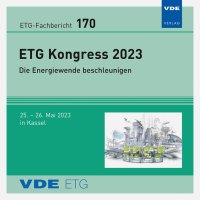Analysis of electricity sharing as modern business models for housing associations
Konferenz: ETG Kongress 2023 - ETG-Fachtagung
25.05.2023-26.05.2023 in Kassel, Germany
Tagungsband: ETG-Fb. 170: ETG Kongress 2023
Seiten: 7Sprache: EnglischTyp: PDF
Autoren:
Haelsig, Philipp; Roehrig, Paul Maximilian; Williams, Robin; Ulbig, Andreas (Fraunhofer FIT, Aachen, Germany)
Inhalt:
German housing associations are expanding the use of renewable energy technologies in their apartment buildings due to rising energy prices and the push for climate neutrality. Local energy business models can offer options to increase revenue from generated electricity while lowering costs for tenants. This study evaluates the potential of these models for housing associations in Germany, including the regulated tenant electricity sharing (TES) model (“Mieterstrom”) and potential future models such as district electricity sharing (DES) and local energy markets (LEM) for different scenarios of technological expansion. The results indicate that TES can more than double the operative revenue compared to direct grid feed-in. DES can increase the revenue by an additional ~20%, but sinks with continuing technological expansion, as balancing effects decrease. In the case of the LEM, housing associations could position themselves as net-buyer, as they can benefit mostly from buying local surplus electricity for high technological expansion scenarios. However, the regulatory framework for these business models remains undefined and will determine the resulting potential.


